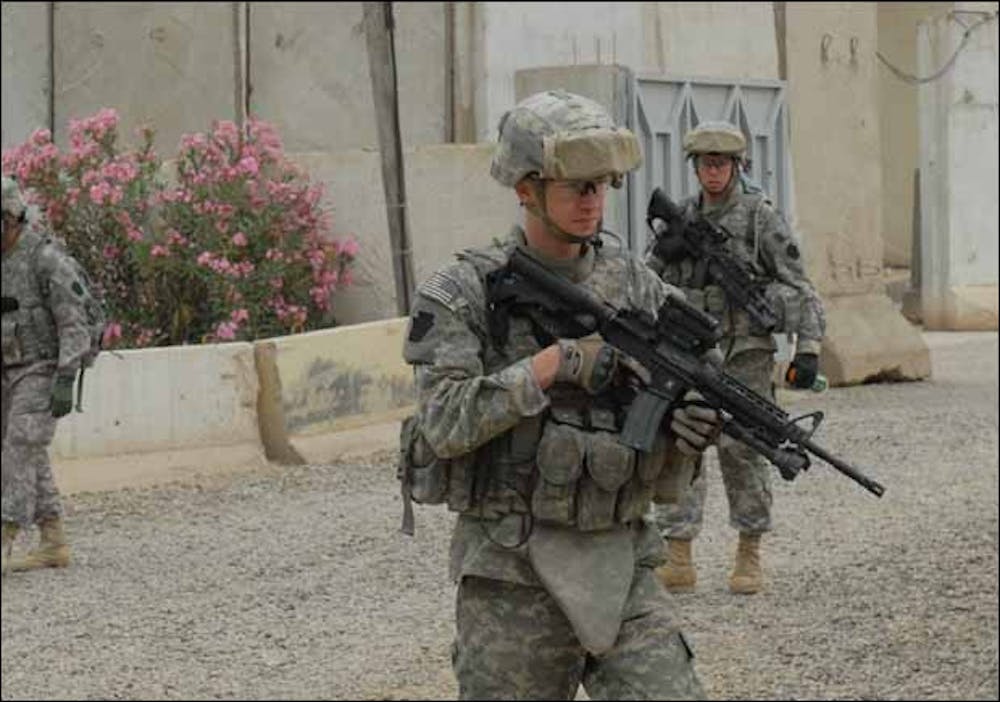In the wake of 9/11, many young men and women put their collegiate ambitions on hold to serve in the military. There are currently nearly 1,300 ASU students in the armed forces.Of those students, roughly ten to 15 percent are in active duty, said Charlene Kamani, office supervisor at Student Services. Because of the 2007 G.I. Bill, more veterans are returning to school but the transition from a wartime situation to a full-time school schedule can wreak havoc.
Brandon Dykun, a freshman in the W. P. Carey School of Business and Global Institute of Sustainability, also works as specialist in the National Guard.
“My country has given me so many good things, it’s my obligation to give a little something back,” he said.
Dykun enlisted in the Pennsylvania National Guard in September 2008 and was deployed to Iraq in January 2009 until September. He started at ASU this semester.
“I definitely have a newfound view of school,” Dykun said. “I like my classes so far. I’m putting everything into my education.”
Dykun attended a community college in Pennsylvania for one semester before being deployed.
“You can be so young, yet learn so much about your life,” he said. “In that year you’re over there you age 20 years mentally. You learn so much about life and death — you have a new appreciation for it.”
Dykun and his unit ran daily patrols, brought supplies to schools and occasionally took part in raids.
Living in a life and death situation can have an adverse effect on the human psyche. Every time he enters a room, Dykun said he subconsciously notes the quickest exit.
“The scariest thing is the unknown. Especially now in the war, it’s not direct action,” he said. “It takes a toll because you’re always stressed.”
Freedom to do whatever he wants is Dykun’s favorite part about being back in school.
“After class if I want to sit around and sleep, I can,” he said. “There’s no one telling me to do this or to do that.”
Some days are more difficult than others, he said.
“Sometimes my teacher would say something and that would trigger a memory of over there,” he said. “And I’ll be sitting there, staring into space thinking about it, five minutes later I’ll come back not hearing a word they said.”
Josh Menigoz, a political science senior, served as a sergeant in the Marine Corps in aviation ordinance and spent five-and-a-half months in Iraq.
“A lot of the times in class, they’ll discuss the whole situation in Iraq,” he said. “But most of the students haven’t been there so they only take the viewpoint of the media.”
Dykun and Menigoz both faced similar problems when they returned from overseas.
“When I came back it was really hard meeting people,” Dykun said. “You want everyone to understand what you’ve been through, but you don’t want to tell them everything.”
It’s difficult to find that same camaraderie that existed in the military, Menigoz said.
Dykun had simple advice for students who don’t understand what it’s like for veterans.
“Talk to veterans more. Ask basic questions to get a viewpoint of what sacrifices people are really making for you,” he said. “We have a whole generation of soldiers coming back and a lot of people don’t know how to deal with that.”
Reach the reporter at mmbarke1@asu.edu




